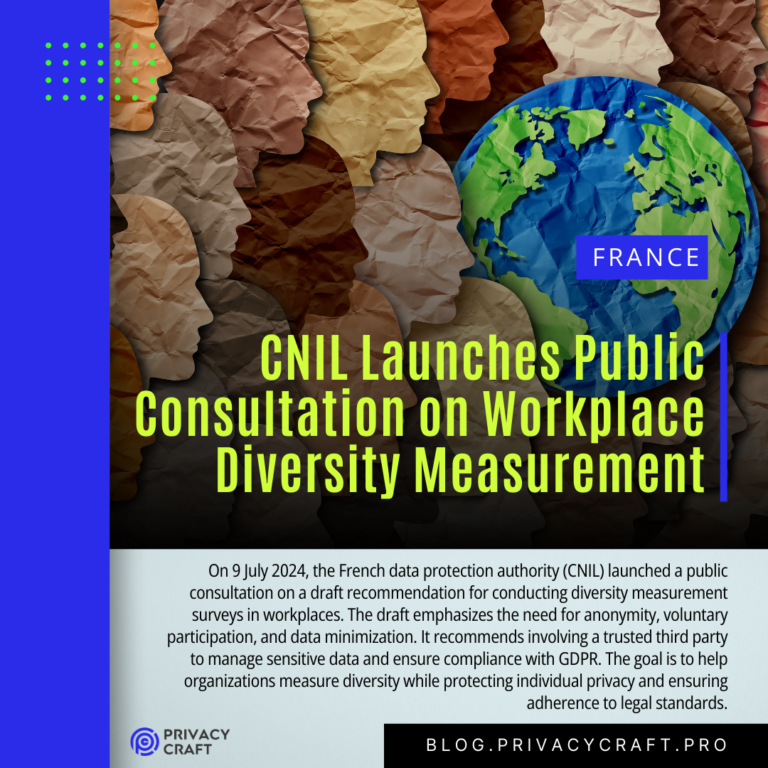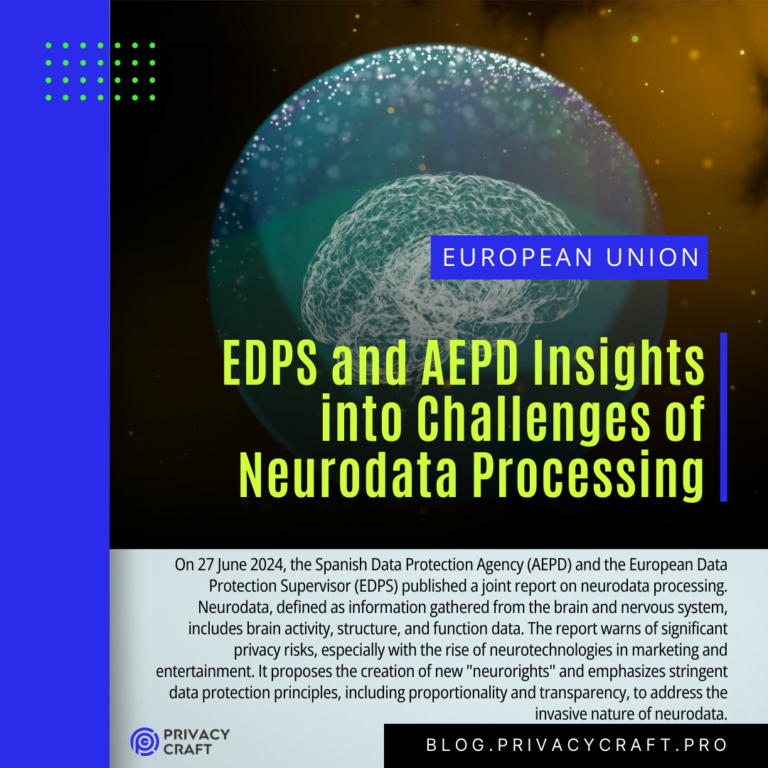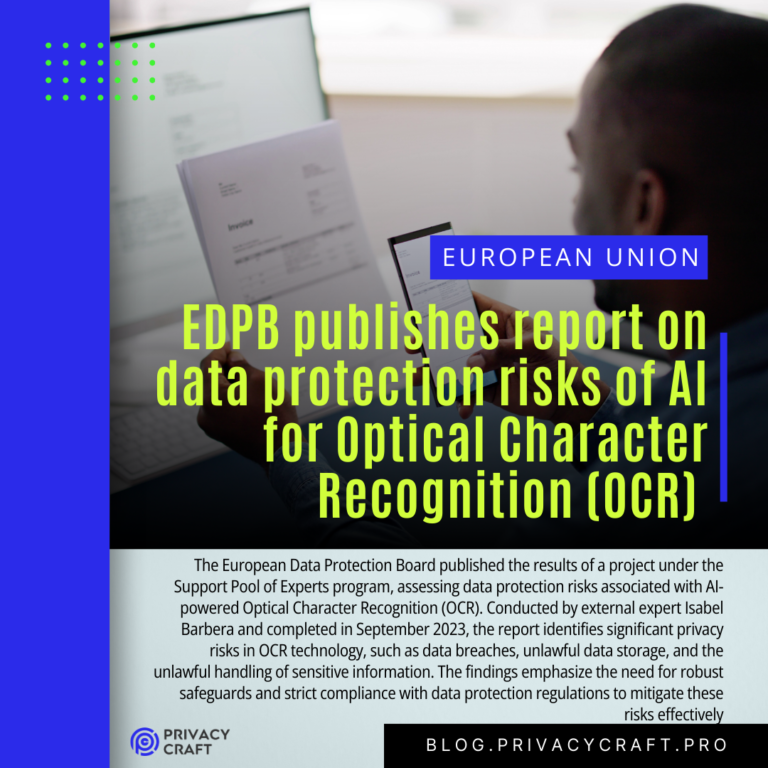CNIL Launches Public Consultation on Workplace Diversity Measurement
On 9 July 2024, the French data protection authority (CNIL) launched a public consultation on a draft recommendation for conducting diversity measurement surveys in workplaces, open until 13 September 2024. The draft emphasizes the need for anonymity, voluntary participation, and data minimization. It recommends involving a trusted third party to manage sensitive data and ensure compliance with GDPR. The goal is to help organizations measure diversity while protecting individual privacy and ensuring adherence to legal standards, including the 2007 Constitutional Council decision prohibiting ethno-racial data collection.
CNIL Launches Public Consultation on Workplace Diversity Measurement Read More »




